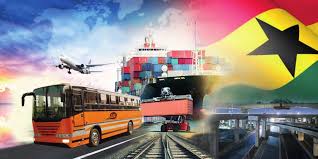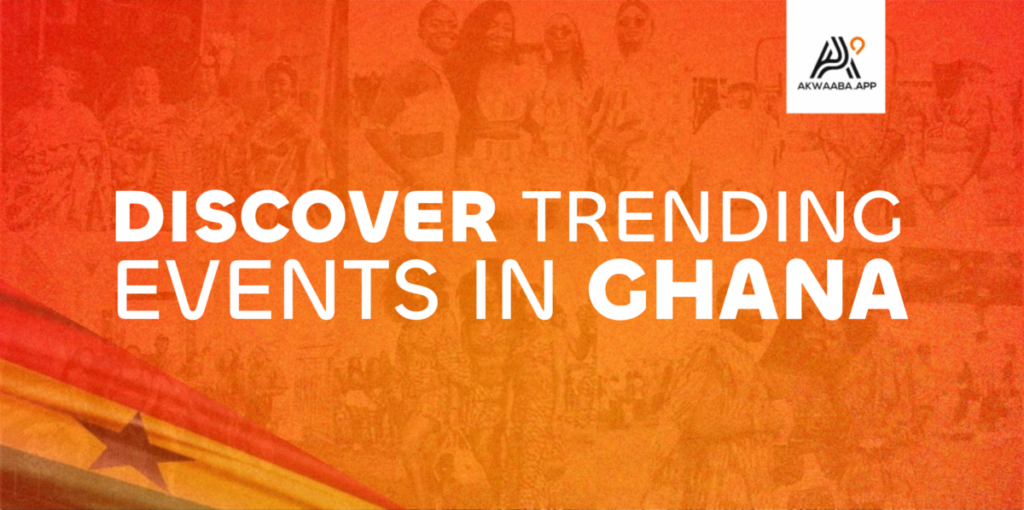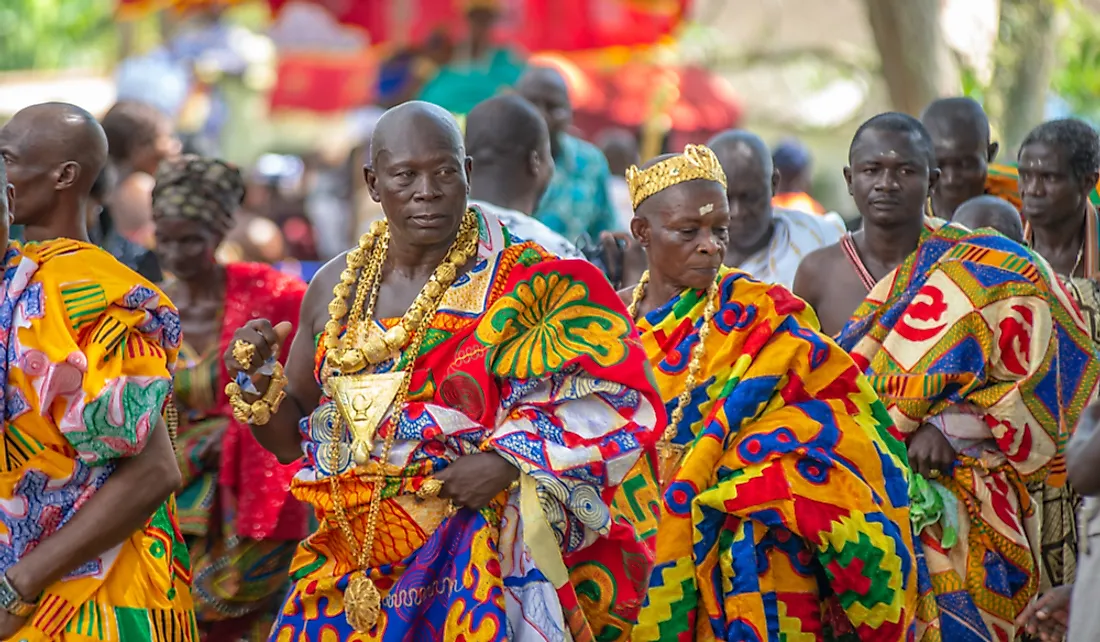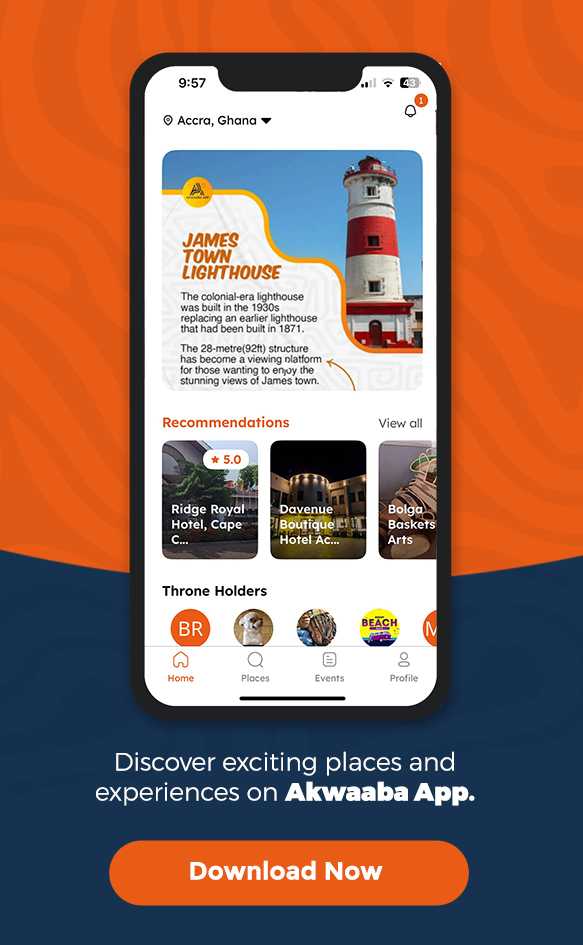Have you ever waited under Ghana’s scorching sun for hours hoping to catch a trotro that might never appear? Has a taxi driver charged you three times as much as the local rate after haggling? You might feel like you are playing an adventure game without knowing the rules when you get around Ghana.
Ghana’s transport system incorporates both traditional and modern methods, creating a unique mix that both locals and visitors must navigate daily. There are various forms of transportation, including public transport, trotros, share taxis, ride-hailing services, and digital platforms like Akwaaba, which revolutionize the way people move around the country. Traditional values and technological advancement are both reflected in Ghana’s thriving transportation ecosystem.
Ghana’s Current State of Transportation
Ghana’s busy streets, from Accra to Kumasi, tell a colorful story of a nation on the move. Yellow-orange taxis zip between lanes while crowded trotros drop and pick up passengers frequently. Okadas (motorcycle taxis) navigate their way through traffic jams at an impressive speed.
Even though Ghana’s transportation system has made significant progress over the past decade, there are still some challenges to overcome. Traffic congestion is a major problem, especially in urban areas, causing commuters to spend hours stuck in traffic. Moreover, inadequate road infrastructure is a contributing factor to this problem, as population and vehicle growth have both been rapidly increasing.
Ghana’s uncontrolled public transportation system depends primarily on the unorganised sector. Due to this, daily commuters face concerns about service quality and safety. Tourists and newcomers find it difficult to navigate without a formal schedule, designated stops, and route information.
While facing these challenges, Ghanaians consistently demonstrate optimism and creativity in their daily lives. The private and public sectors have also taken recent initiatives to improve the situation. With digital solutions such as the Akwaaba app, a previously chaotic transportation process can now be organized and efficient.
Traditional Transportation Methods in Ghana
Trotros – Iconic minibuses of Ghana:
It’s no secret that the trotro represents Ghanaian public transportation. In Ghana, approximately 70% of commuters travel by these colorful minibuses every day.Trotros follow predetermined routes but have flexible schedules; they only leave when they are completely booked. A majority of trotros have creative names or sayings painted on their backs, such as religious phrases, proverbs, or popular song lyrics.
While trotros are culturally significant, they also pose a number of challenges. The wooden benches are often overcrowded with passengers squeezed tightly together. It is common to experience maintenance issues, as well as breakdowns. . Those unfamiliar with the unofficial, complicated route system may have difficulty finding the correct trotro.
There are a number of stations, or “lorry parks,” throughout the system where passengers can find vehicles headed to different destinations. During fares collection, the conductor shouts out destinations, creating a distinctly Ghanaian atmosphere. Despite gradual modernization, this traditional system remains largely unchanged.
Shared Taxis and Drop Taxis
On Ghanaian roads you will also see yellow-orange taxis. They operate in two primary ways: either as “dropping” taxis that transport clients straight to their destinations for a negotiated charge, or as shared taxis that follow set routes similar to trotros but with fewer passengers.
Usually transporting four people, shared taxis travel predetermined routes, picking up and dropping off customers as they go. Although they cost a little more than trotros, they are faster and more comfortable. Foreigners who may not be familiar with market rates often opt for drop taxis, which offer door-to-door service at a premium cost.
In Ghana, negotiating fares is crucial when hiring drop taxis. Due to the lack of standardisation and transparency of prices, tourists—who frequently spend much more than locals—may find themselves in a difficult situation. Usually, drivers give high quotes at first so passengers can haggle for a lower fee..
The quality of taxis in Ghana varies widely, from well-maintained cars with skilled drivers to rickety vehicles with questionable safety regulations. Due to this discrepancy, ride-hailing services have a chance to enter the market with standard pricing and quality assurance.
Choosing between two- and three-wheelers: Okadas and Pragias
Often, Ghanaians use okadas (motorcycle taxis) or pragias (auto-rickshaws or tuk-tuks) to navigate narrow streets. In congested areas, smaller vehicles have an advantage over larger ones.
The Okadas are commonly found in densely populated neighborhoods with narrow, unpaved roads. Despite limited regulation, safety concerns persist due to their speed and affordability. Most riders do not wear helmets and drive recklessly during rush hours.
In their covered three-wheeled design, Pragias are a middle ground between motorcycles and taxis. They can carry up to three passengers. They are becoming increasingly popular in southern urban areas, especially in northern Ghana. They offer some protection against the elements while still allowing for easy navigation.
It is illegal to operate an okada or a pragia in many parts of Ghana. The motorcycle taxi industry in Accra was technically banned in 2012, but implementation has been inconsistent. Because of this uncertain regulatory environment, these modes of transportation have been unable to develop into more formalized, safer modes.
Water Transportation: Ferries and Boats
In Ghana, due to its geography, particularly the Volta Lake, one of the world’s largest artificial lakes, water transportation plays a vital role in transportation. Ferries and boats provide transportation to urban commuters and rural communities without road access.
Ferry services connect Tema and Mpakadan in the Greater Accra region, offering an alternative to congested roads.
The Volta Lake Transport Company, which runs larger ships that transport people, cars, and goods, serves as a vital resource for villages in the Volta and Northern areas. Coastal towns and communities of fishermen still use traditional canoes and small powered boats to get to fishing grounds and between villages nearby. These watercraft are among Ghana’s earliest modes of transportation, frequently painted in bright colours and run by local entrepreneurs. Travellers visiting the Volta region or looking for beautiful alternatives to driving between certain locations will especially benefit from this integration.
Trains in Ghana: Reviving the railway system
Ghana was once proud of its railway network as a means of transportation. By the late 20th century, the railway system had declined considerably. Government investments, however, have led to its renaissance. A narrow-gauge network dating back to colonial times is being upgraded and expanded to accommodate modern transportation needs.
Thanks to the rehabilitation of the Accra-Tema railway line, commuters can now travel between Accra and Tema without encountering traffic congestion. The development and reconstruction of additional lines between Accra, Nsawam, and Kumasi is underway, with portions already in operation.
Ghana’s public transportation system now offers a level of comfort previously unattainable. A number of air-conditioned trains operate on these newly revitalized routes. Fixed schedules and dedicated stations allow commuters to plan their journeys in advance, while reasonable fares make this a viable option for many.
Air Travel: Domestic Flights in Ghana
In Ghana, domestic flights are the fastest method of travelling long distances, connecting major cities and regions in less than an hour versus potential full-day road journeys. Regional airports such as Accra, Kumasi, Tamale, Takoradi, and others are served frequently by airlines like Africa World Airlines and PassionAir.
Domestic flights are operated from Kotoka International Airport in Accra, using Terminal 2. In the last few years, safety standards and passenger facilities at regional airports have significantly improved.
In Ghana, travel by air is preferred by those with higher incomes and business travellers since it is relatively more expensive than travelling by road. However, air travel prices have decreased due to increased competition between carriers, making it more affordable for middle-income travelers.
Through its platform, Akwaaba offers direct flight bookings with domestic airlines. The user can compare flight times and prices with long-distance road options based on their time constraints and budget.
Modern Transportation Solutions in Ghana
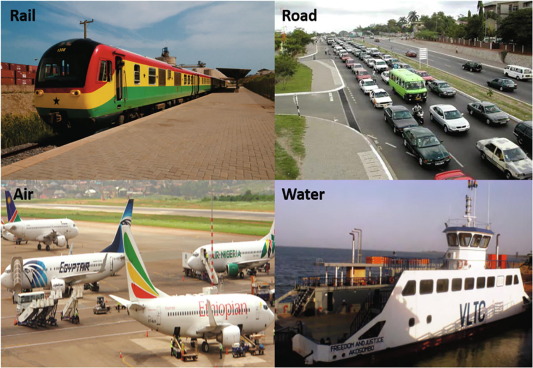
Ride-hailing apps introduced around 2016 have revolutionized Ghana’s transportation sector. Traditional taxis lack features such as real-time tracking, fixed pricing, and safety features offered by these services. The use of smartphones for requesting rides, tracking routes, and rating drivers creates a greater sense of transparency and trust among passengers.
Uber, Bolt, and local startups have helped modernize urban travel while creating thousands of jobs. Women, tourists, and night travelers have benefited most from them, since they offer safer and more reliable transportation options. Although such services offer these benefits, they are mostly confined to cities and require access to the internet and smartphones, making them inaccessible to low-income families and rural areas.
Innovation at its best: Akwaaba App
Akwaaba App is the perfect alternative to generic ride-hailing services that don’t suit Ghana’s unique transportation needs. From booking taxis, searching for shared rides, accessing trotro (minibus) routes, and planning intercity travel, it offers an all-in-one solution. One of Akwaaba’s most prominent features is its ability to work on basic phones, use little data, and provide USSD codes for feature phones.
It provides maps of informal trotro routes, lorry parks, and other local knowledge to make navigation easier for visitors and newcomers. In addition to intercity travel bookings, the app now offers comparisons of prices and schedules for providers such as STC and VIP, making travel planning easier.
Final Thoughts
Ghana’s transportation system is dynamic, challenging, and full of potential. Whether you hail a shared taxi, squeeze into a tro tro, or hop on a bus, there’s always a way to get around.
But with Akwaaba, you can make it smarter. It makes traveling safer, faster, and more convenient. Make your next trip to Ghana a great one by taking Akwaaba with you.
